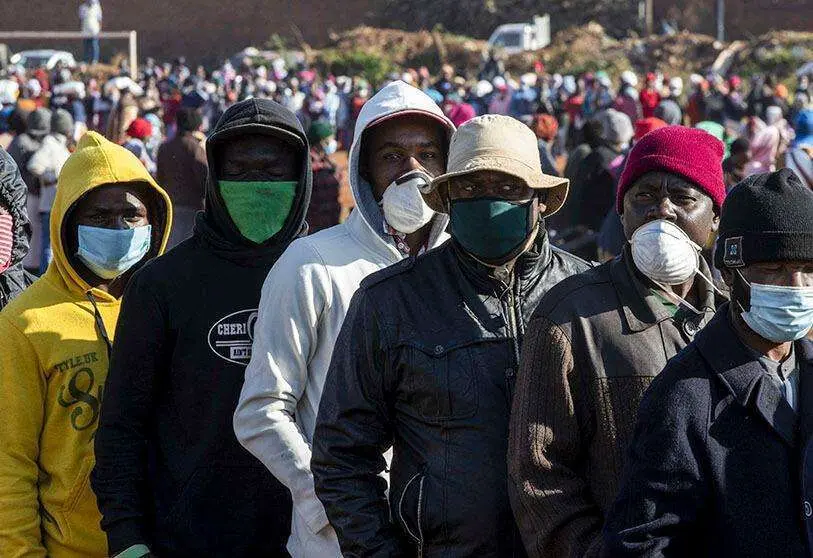Africa: problems and opportunities

To say that Africa is a particularly unstable continent is a truism because it is largely populated by countries that have only recently achieved independence, that are institutionally very weak, that have young and poorly educated populations, and that are highly dependent on climatic changes and uncontrolled changes in commodity prices. As a result, states are weak, if not outright failures like Somalia, famines are recurrent in some areas (the Russian invasion of Ukraine will increase them as it prevents the export of its important food and fertiliser production), natural disasters strike other regions, their natural wealth is exploited and often plundered by companies from the first world and also from China (think of the Congo cobalt), and democracies are regularly assaulted by coups d'état that impose authoritarian regimes.
Jihadist terrorism is on the rise in Africa, moving from the Middle East to the Western Sahel, something that should be of great concern given its disturbing proximity, and which is not unrelated to the recent wave of coups d'état in Mali, Burkina Faso and Guinea Conakry, also reaching Niger, Cameroon and Nigeria, and threatening Côte d'Ivoire, Togo and Ghana, as is already happening in northern Mozambique. France, with the support of other European countries such as Spain, has been trying to combat it for years with Operation Barkhane, amid growing difficulties that are forcing it to abandon its bases in Mali and move them to Niger, while Russian mercenaries from the Wagner group are arriving in Bamako. Dictators seem to get along better with them. France's traditional influence on the continent, which together with its nuclear potential and right of veto in the Security Council are the basis of Paris' global influence, is diminishing, while the presence in Africa of countries such as Russia and Turkey, which seek to increase their political influence and arms sales, is growing, as is that of China, interested in raw materials and investments that offer the advantage over ours of not bothering with questions of good governance, corruption or human rights. As a result, Western influence is diminishing. This is illustrated by the fact that no African country unequivocally condemns Russia's invasion of Ukraine or joins the sanctions regime. Some, such as South Africa, compare Russia's invasion of Ukraine to the US invasion of Iraq, accuse the West of double standards and say that NATO is to blame for what is happening. Others, such as Morocco, absent themselves from the UN General Assembly when the vote condemning Russia was about to begin in order to avoid having to "portray themselves". They see this war as something foreign and do not want to antagonise Russia.
They are very different countries, but generally share serious shortcomings in politics and economics: no African country has a permanent seat on the UN Security Council, the main body of global governance, and only one, South Africa, is a member of the G20, which brings together the world's leading economies. The media only seems to pay attention to the continent when misfortune strikes. African countries show serious deficiencies in such basic structures as access to electricity, which still does not reach 640 million households, water and sanitation, education, health, roads, telephones, not to mention internet and wifi. Less than 20% of the African population has been vaccinated against the CVID, although it must be acknowledged that, however imperfect the continental statistics may be, the number of deaths in Africa is low for reasons that are not yet well known, but which in principle are associated with the relative youth of the population, with the habits of rural life and with a possible greater physical resistance to the viruses that are part of daily life there, since it is not in vain that the difference in life expectancy between the Central African Republic and Spain is around 30 years (53 to 83), precisely due to the viruses.
Faced with an ageing Europe, where the average age will reach 43.9 years in 2020 (in Spain it was one year older, 44.9), in Nigeria it is only 18 years, and this is both a source of energy, dynamism and creativity, and of problems in providing shelter, food and work for a demographic explosion that shows no signs of letting up. Egypt is adding a million people every year. Mortality is falling rapidly while birth rates remain very high in many countries. If in 1914 the African population was 134 million (7% of humanity), a century later it is 1.3 billion (ten times more) with expectations of reaching almost 2.5 billion by 2050, which would be 25% of humanity. According to the UN, Africa could be home to 40% (4.2 billion) of the world's inhabitants by the end of this century. This, coupled with the problems posed by global warming and its consequences of desertification and other natural disasters, augurs well for a significant increase in migration flows both within and outside the continent. This means huge urbanisation processes (houses, communications, infrastructures of all kinds) within Africa, and also large waves of emigration to other lands.
For all these reasons, our neighbouring Africa will be the continent where great problems will be combined with great opportunities in the coming years.
Jorge Dezcallar
Spanish Ambassador

